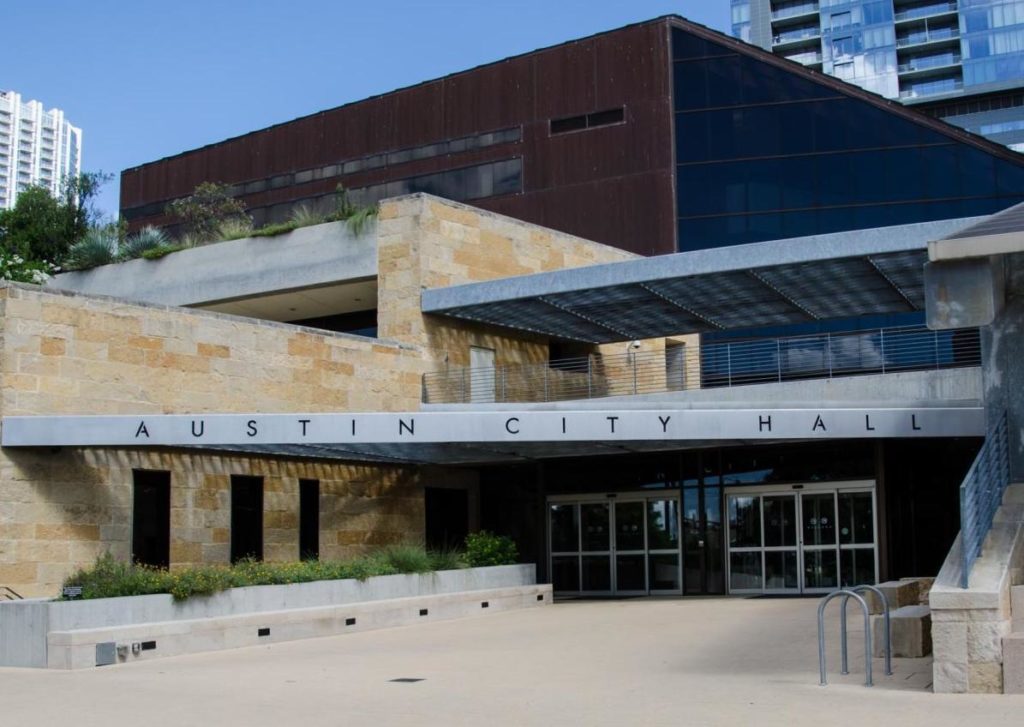Update, 12/11: Howard Lazarus and Spencer Cronk are the two City Manager finalists. They will interview with City staff and Council Members on Tuesday and Wednesday, December 12 and 13, and take part in a public town hall at the Convention Center from 7 to 9 pm on Tuesday.
Original post: Last Monday, Mayor Steve Adler revealed the six final candidates for Austin’s open City Manager position in a post on the City’s message board. City Council is now entering the final stretch of interviews and public input before they fill the position prior to the close of 2017.
Choosing a City Manager is one of the most important decisions any City Council makes. It presents a unique opportunity to hire a candidate who represents our community’s values and brings a forward thinking mindset to addressing Austin’s civic challenges.
Austin Tech Alliance understands that leveraging the power of technology can play an essential role in helping to tackle issues like affordability, mobility, and environmental preservation — and we believe the next City Manager should also embrace using tech as a tool to solve these civic challenges.
Austin Tech Alliance is urging City Council to use the final interviews and selection process to choose a dynamic, tech-forward City Manager who will help to bring city services into the digital age.
Why does the City Manager matter?
The City of Austin operates as a council-manager form of government, where City Council sets the policy and budget and the City Manager implements both.
Or viewing things through a corporate lens: the City Council is effectively the Board of Directors for the City, and it is chaired by the Mayor. The Board hires the CEO — or City Manager, in this case — who’s in charge of carrying out the day-to-day administrative operations for the entire organization.
The Austin City Manager thus oversees operations for 41 departments and offices with more than 12,000 employees and a budget of $3.7 billion.
With critical challenges facing Austin, the next City Manager has enormous influence in determining how the City addresses them and just how smart of a smart city Austin becomes.
Who are the six finalists?
- Spencer Cronk is the Minneapolis City Coordinator and previously served as Commissioner of the Minnesota Department of Administration.
- Cecil House is an attorney and who currently leads the public sector construction practice for the New York office of Gilbane Building Company. Prior to joining Gilbane, House was the General Manager and Chief Operating Officer of the New York City Housing Authority.
- Scott Kubly is the Seattle Department of Transportation director and previously served as deputy director of the Chicago Department of Transportation.
- Howard Lazarus serves as the City Administrator for Ann Arbor, MI. Lazarus previously served the City of Austin as Director of Public Works.
- Denise Roth is a senior advisor at WSP | Parsons Brinckerhoff, a global engineering and professional services organization. Roth previously served as the administrator of the U.S. General Services Administration, appointed to serve in this position by President Barack Obama.
- Maura Sullivan serves as the Chief Operating Officer for the City of Chattanooga. Prior to this, she was the interim Executive Director of the Memphis Housing Authority.
What can Austin’s tech sector do?
City Council will make the final decision about who to hire, and Austin’s tech sector should use this opportunity to let Council Members know what you’re looking for in an ideal City Manager.
ATA believes it’s essential for the next City Manager to leverage technology to help solve community challenges — and if you agree, let your Council Member know! (Not sure who your Council Member is? Visit here and scroll down to “District Lookup.”)
Reach out to your Council Member via phone, email, or Twitter with a simple message: “When selecting the next City Manager, please choose a dynamic, tech-forward candidate who will bring city services into the digital age and use tech as a tool to help solve civic challenges.”
It’ll take all of 90 seconds, and Austin will be better off thanks to your civic engagement.

